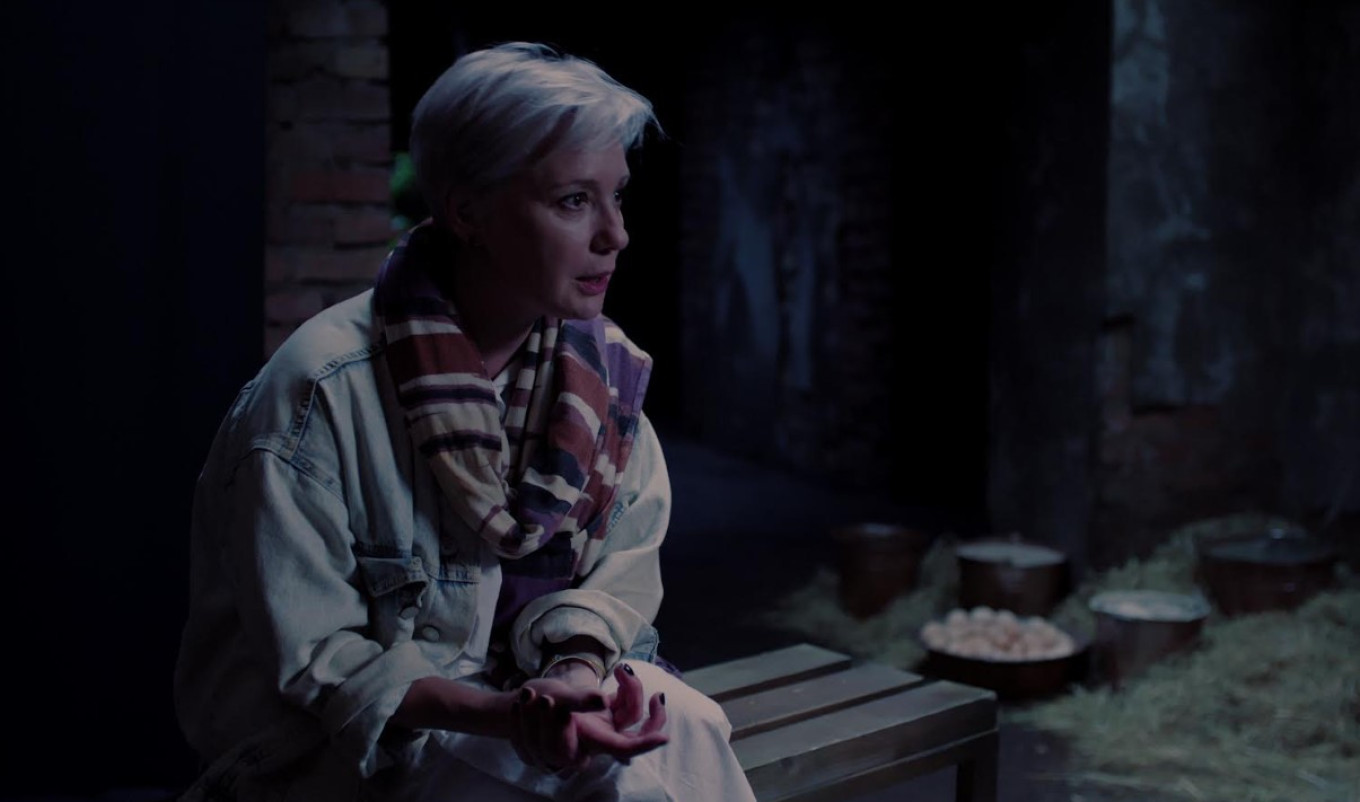On the final day of the Venice Film Festival, Armenian director Zara Jian screened her documentary “I Will Revenge This World With Love” in the Venice Classics section. The film, which pays homage to the Soviet filmmaker Sergei Parajanov, draws upon themes of freedom, resilience and art in the face of oppression.
Jian’s work is not only a tribute to Parajanov but a reflection on the ongoing struggles of her homeland and her personal journey back to Armenia.
Sergei Parajanov was born in 1924 to Armenian parents in Tbilisi, Georgia; educated in Moscow; his first work experience was in Kyiv; and his early career followed the tenets of Soviet realism. But by 1965 with the release of “Shadows of Forgotten Ancestors,” he renounced Soviet realism entirely, embracing a radical, poetic form of filmmaking. His next film, “The Color of Pomegranates” (1969), was a masterpiece so avant-garde that Soviet censors found it intolerable. By 1974, Parajanov was imprisoned for sodomy and pornography, accused of Ukrainian nationalism—an ironic charge for a Moscow-educated, Georgian-born Armenian, especially considering the apolitical nature of his work.
Jian’s film opens dramatically at Moscow’s Sheremetyevo Airport (although the actual filming took place at the Zvartnots airport in Yerevan). A camera captures the subdued terminal, focusing on the stern face of a Russian customs officer interrogating a young man. It is immediately clear that the scene reflects the tensions of post-February 2022 Russia. When the officer turns her attention to the film’s narrator (played by Jian herself), she asks why the woman is leaving. Jian’s defiant answer —”I’m going home”— establishes the emotional undertone of her departure from Russia and her return to Armenia.
In an interview with The Moscow Times, Jian explained why she made the film. “I didn’t leave Russia with words like ‘That’s it!’” she explains. “But after 2020, when Azerbaijan attacked Karabakh and even crossed Armenia’s borders, I couldn’t stay there anymore. It felt like history was repeating itself — 109 years after the genocide — and I was devastated.” Jian asserts that the turmoil, rooted in Soviet history, played into Putin’s political strategy, and her disillusionment deepened as Russian peacekeepers did little more than watch the attack.
The documentary takes a critical turn when Jian visits the Museum of Parajanov. It is here, she says, that she found both inspiration and a sense of escape from “toxic reality.” “Through Parajanov’s life and work, I began to see the theme of human freedom in non-free conditions — his ability to remain creatively free despite the totalitarian state.” Even behind bars, Parajanov continued to create art, making collages and drawings.
At the museum, Jian found herself transfixed by Parajanov’s self-portrait “Child of Three Nations.” “In that moment,” she recalled, “I realized how many hardships Parajanov endured during the Soviet years, yet he remained committed to his work. He was a genius, and his survival was an act of defiance.”
“The Soviet regime needed an excuse to imprison him,” Jian notes in her film. “He was one of the freest men alive, fearless and boundless. That made him dangerous.” Parajanov was arrested again in 1982. He spent 15 years silenced by the regime, his brilliance stifled until his later works, “The Legend of Suram Fortress” and “Ashik Kerib,” which he made before his death in 1990.
The film reflects Parajanov’s legacy through conversations with prominent filmmakers and artists including Atom Egoyan, Emir Kusturica, Tarsem Singh, Joel Chapron, and Russian actress-in-exile Chulpan Khamatova. These post-Soviet cultural figures, colleagues and friends of Parajanov, and international artists all discuss his impact on their work and the art world.

Chulpan Khamatova commented, “Parajanov was a creator who defied norms and swam against the current, splashing joy and love for life despite the hardships he endured.” For Khamatova, Parajanov’s story isn’t just about art. It is a tale of a life that could have easily ended in darkness but was instead filled with love for creation.
Atom Egoyan, an acclaimed Canadian filmmaker of Armenian origin best known for “The Sweet Hereafter,” called Parajanov a “transnational outlaw.” “He remained true to himself, creating beauty in defiance of reality.”
Parajanov’s persona, both on and off-screen, was equally legendary. He was known for his eccentricities and his disregard for societal norms. People came to expect the unexpected from him, not only in cinema but in life. He embraced this reputation, often jokingly referring to himself as “a crazy old man who paints flowers.”
Jian’s film is a celebration of Parajanov’s life and work but also an exploration of the power of art to transcend political repression. It speaks not only to the legacy of one filmmaker, but also to the plight of nations caught in the crosshairs of geopolitical conflict. Jian’s declaration to “revenge this world with love” is a testament to the enduring power of art to heal, resist, and inspire.
A Message from The Moscow Times:
Dear readers,
We are facing unprecedented challenges. Russia’s Prosecutor General’s Office has designated The Moscow Times as an “undesirable” organization, criminalizing our work and putting our staff at risk of prosecution. This follows our earlier unjust labeling as a “foreign agent.”
These actions are direct attempts to silence independent journalism in Russia. The authorities claim our work “discredits the decisions of the Russian leadership.” We see things differently: we strive to provide accurate, unbiased reporting on Russia.
We, the journalists of The Moscow Times, refuse to be silenced. But to continue our work, we need your help.
Your support, no matter how small, makes a world of difference. If you can, please support us monthly starting from just $2. It’s quick to set up, and every contribution makes a significant impact.
By supporting The Moscow Times, you’re defending open, independent journalism in the face of repression. Thank you for standing with us.
Once
Monthly
Annual
Continue

Not ready to support today?
Remind me later.
×
Remind me next month
Thank you! Your reminder is set.





